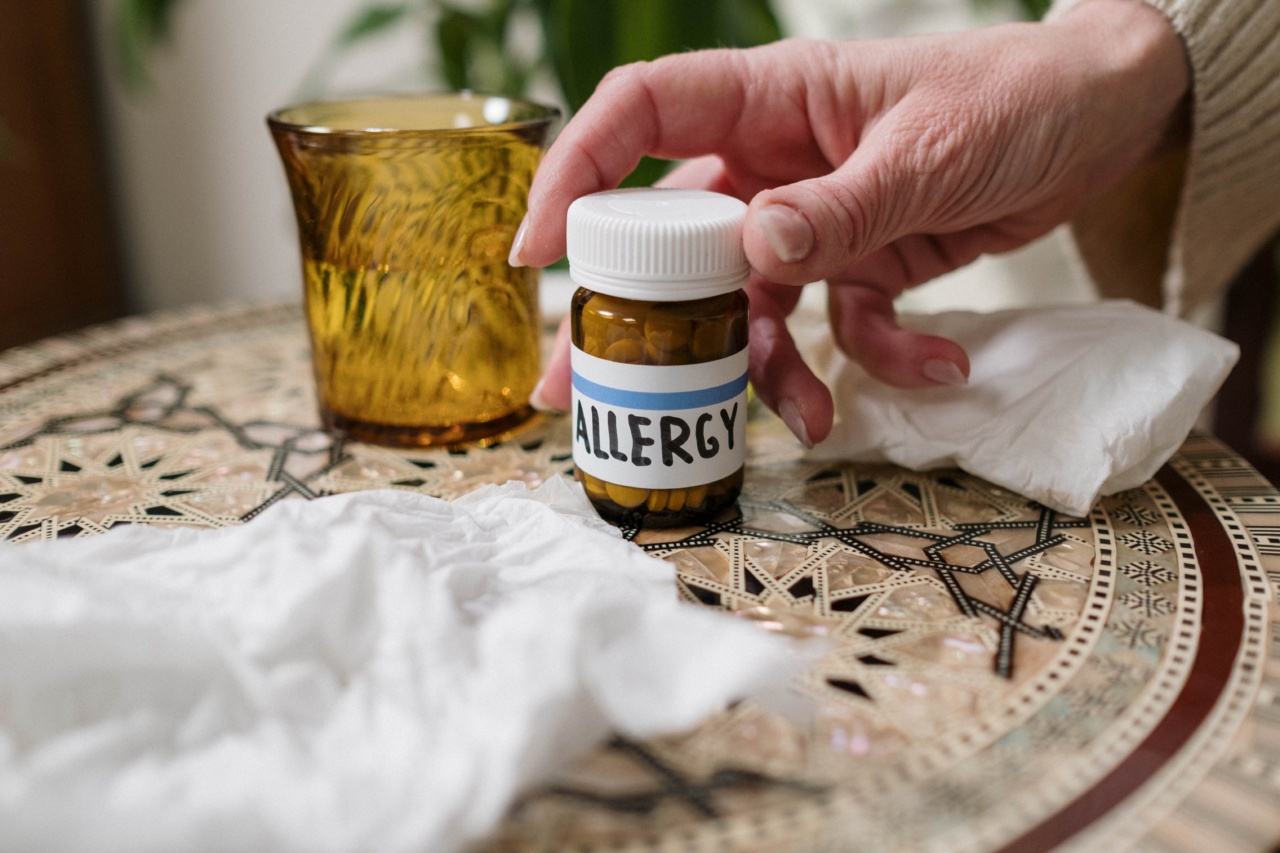Summer is a time when most people look forward to enjoying the great outdoors. However, for many individuals, it also means dealing with annoying allergy symptoms.
Allergies can make the summer months a miserable experience, but with proper prevention and treatment, you can survive the season without constantly battling watery eyes and a runny nose. In this article, we will explore some effective strategies to help you combat summer allergies and enjoy the sunny weather to the fullest.
The Causes of Summer Allergies
Summer allergies are primarily caused by pollens from blooming trees, grasses, and weeds. These tiny particles are released into the air and easily find their way into our respiratory system, triggering an allergic reaction.
Other common allergens during the summer include mold spores, dust mites, pet dander, and insect bites. Climate change and environmental factors have also contributed to an increase in pollen production, making allergies more prevalent.
Prevention Tips
Prevention is key to managing summer allergies. By taking some precautionary measures, you can reduce your exposure to allergens and alleviate symptoms. Here are some useful tips:.
1. Stay indoors during peak pollen times
Pollen counts are typically highest in the early morning and late afternoon. If possible, try to stay indoors during these times to minimize your exposure.
Closing windows and using air conditioning with a high-quality filter will help keep the indoor air clean and pollen-free.
2. Wear protective clothing
When venturing outside, wear long sleeves, pants, and a hat to shield your skin and hair from pollen. Sunglasses can also help protect your eyes. After returning indoors, change your clothes and take a shower to wash away any lingering allergens.
3. Keep windows and doors closed
Keeping windows and doors closed prevents pollen from entering your home. Use air purifiers with HEPA filters to further improve indoor air quality. Regularly clean and replace filters to maintain their effectiveness.
4. Avoid outdoor chores
Mowing the lawn or gardening can stir up pollen and exacerbate your symptoms. If possible, delegate these tasks to someone who doesn’t suffer from allergies. If you must do them yourself, wear a mask to reduce your exposure to allergens.
5. Check the daily pollen forecast
Several websites and weather apps provide daily pollen forecasts. Checking the forecast will give you an idea of the pollen levels in your area, allowing you to plan your outdoor activities accordingly.
On high pollen days, it’s best to limit your time outside or take necessary precautions.
Treatment Options
If prevention measures aren’t enough or if you still experience allergy symptoms despite your best efforts, there are several treatment options available. These can provide relief and allow you to enjoy the summer season:.
1. Over-the-counter antihistamines
Antihistamines are readily available at pharmacies and can help alleviate symptoms such as sneezing, itching, and a runny nose. Some popular brands include Claritin, Zyrtec, and Allegra. They are generally non-drowsy and can be taken as needed.
2. Nasal sprays
Nasal sprays can provide relief from nasal congestion and inflammation. They work by reducing the swelling in the nasal passages, allowing for easier breathing. Popular options include Flonase, Nasacort, and Rhinocort.
It’s important to follow the instructions and not use them for extended periods, as they can cause rebound congestion.
3. Eye drops
If you suffer from itchy or watery eyes, using over-the-counter eye drops can help provide relief. Look for eye drops specifically designed for allergy relief, such as Zaditor or Alaway.
Avoid using redness-relieving eye drops, as they can worsen allergy symptoms.
4. Allergy shots
Allergy shots, also known as immunotherapy, can be a long-term solution for managing allergies. They involve regular injections of small amounts of allergens to desensitize your immune system.
This treatment is typically administered over a few years and can significantly reduce your allergy symptoms, even after discontinuation.
5. Decongestants
If nasal congestion is your primary symptom, over-the-counter decongestants like Sudafed can provide temporary relief by shrinking the blood vessels in your nasal passages.
However, be cautious with prolonged use, as they can cause rebound congestion and other side effects.
Consulting an Allergist
If your summer allergies are severe or persistent, it’s advisable to consult an allergist. They can perform allergy tests to identify specific triggers and create a personalized treatment plan tailored to your needs.
An allergist can also provide advice on managing allergies alongside existing medical conditions or medications, ensuring your safety and well-being.





























